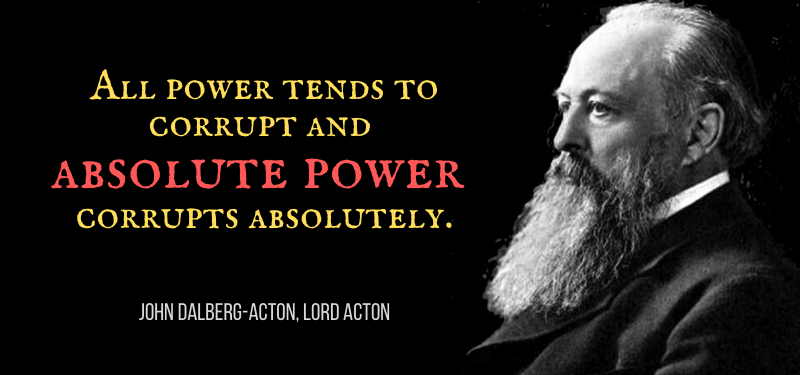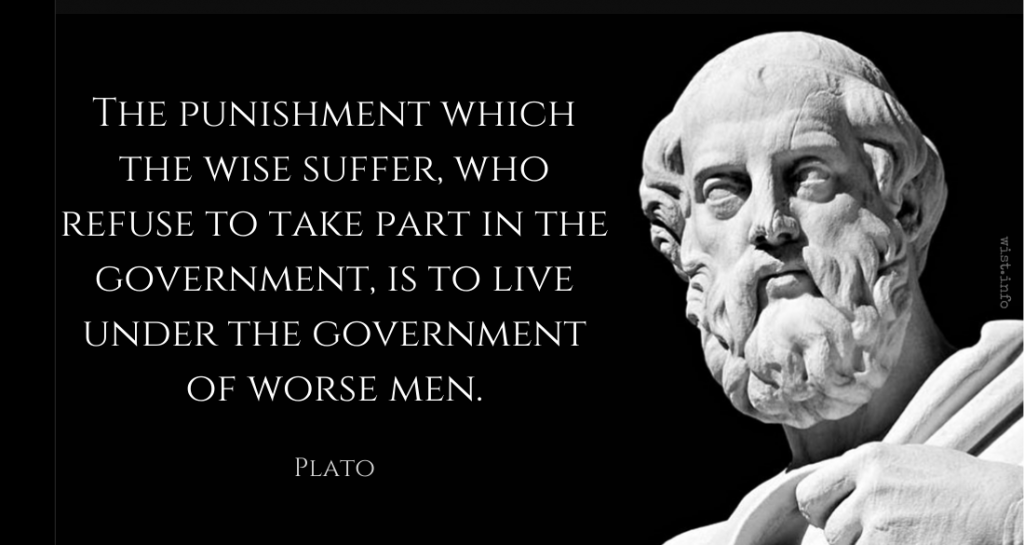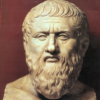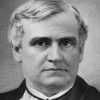Practically, I am, nevertheless, compelled to act as if freedom of the will existed. If I wish to live in a civilized community, I must act as if man is a responsible being. I know that philosophically a murderer is not responsible for his crime; nevertheless, I must protect myself from unpleasant contacts. I may consider him guiltless, but I prefer not to take tea with him.
Albert Einstein (1879-1955) German-American physicist
“What Life Means to Einstein,” Interview with G. Viereck, Saturday Evening Post (26 Oct 1929)
(Source)
Edited as "I am compelled to act as if free will existed, because if I wish to live in a civilized society I must act responsibly. I know that philosophically a murderer is not responsible for his crime, but I prefer not to take tea with him," in Viereck, Glimpses of the Great (1930).
Quotations about:
responsibility
Note not all quotations have been tagged, so Search may find additional quotes on this topic.
The public buys its opinions as it buys its meat, or takes in its milk, on the principle that it is cheaper to do this than to keep a cow. So it is, but the milk is more likely to be watered.
Humanity has advanced, when it has advanced, not because it has been sober, responsible and cautious, but because it has been playful, rebellious, and immature.
I cannot accept your canon that we are to judge Pope and King unlike other men, with a favourable presumption that they did no wrong. If there is any presumption it is the other way against holders of power, increasing as the power increases. Historic responsibility has to make up for the want of legal responsibility. All power tends to corrupt and absolute power corrupts absolutely. Great men are almost always bad men, even when they exercise influence and not authority: still more when you superadd the tendency or the certainty of corruption by authority. There is no worse heresy than that the office sanctifies the holder of it.
John Dalberg, Lord Acton (1834-1902) British historian
Letter to Bp. Mandell Creighton (3 Apr 1887)
(Source)
Often paraphrased, "Power corrupts, and absolute power corrupts absolutely."
There is an alternate, probably spurious version of this quote, for which I have been unable to find an actual citation (except where it is mis-cited to this letter to Bp. Creighton): "And remember, where you have a concentration of power in a few hands, all too frequently men with the mentality of gangsters get control. History has proven that. All power corrupts; absolute power corrupts absolutely." As the word "gangster" has only been traced back to 1886, and that in the US, its use by Acton (esp. in a modern sense) seems unlikely.
Certainly, Gentlemen, it ought to be the happiness and glory of a representative to live in the strictest union, the closest correspondence, and the most unreserved communication with his constituents. Their wishes ought to have great weight with him; their opinions high respect; their business unremitted attention. It is his duty to sacrifice his repose, his pleasure, his satisfactions, to theirs, — and above all, ever, and in all cases, to prefer their interest to his own.
But his unbiased opinion, his mature judgment, his enlightened conscience, he ought not to sacrifice to you, to any man, or to any set of men living. These he does not derive from your pleasure, — no, nor from the law and the Constitution. They are a trust from Providence, for the abuse of which he is deeply answerable. Your representative owes you, not his industry only, but his judgment; and he betrays, instead of serving you, if he sacrifices it to your opinion.
The punishment which the wise suffer who refuse to take part in the government is to live under the government of worse men.
Plato (c.428-347 BC) Greek philosopher
Republic, Book 1, 347c
In Ralph Waldo Emerson, "Eloquence," Society and Solitude (1870).
Alt. trans.:More discussion here.
- "One of the penalties for refusing to participate in politics, is that you end up being governed by your inferiors."
- The Constitution Party (1952-68) used on their letterhead the variant, "The penalty good men pay for indifference to public affairs is to be ruled by evil men."
- "The price of apathy is to be ruled by evil men."
- "Those who are too smart to engage in politics are punished by being governed by those who are dumber."
In context (Plato in Twelve Volumes, Vols. 5 & 6 [tr. Shorey (1969)]):[346e] "Then, Thrasymachus, is not this immediately apparent, that no art or office provides what is beneficial for itself -- but as we said long ago it provides and enjoins what is beneficial to its subject, considering the advantage of that, the weaker, and not the advantage the stronger? That was why, friend Thrasymachus, I was just now saying that no one of his own will chooses to hold rule and office and take other people's troubles in hand to straighten them out, but everybody expects pay for that, [347a] because he who is to exercise the art rightly never does what is best for himself or enjoins it when he gives commands according to the art, but what is best for the subject. That is the reason, it seems, why pay must be provided for those who are to consent to rule, either in form of money or honor or a penalty if they refuse." "What do you mean by that, Socrates?" said Glaucon. "The two wages I recognize, but the penalty you speak of and described as a form of wage I don't understand." "Then," said I, "you don't understand the wages of the best men [347b] for the sake of which the finest spirits hold office and rule when they consent to do so. Don't you know that to be covetous of honor and covetous of money is said to be and is a reproach?" "I do," he said. "Well, then," said I, "that is why the good are not willing to rule either for the sake of money or of honor. They do not wish to collect pay openly for their service of rule and be styled hirelings nor to take it by stealth from their office and be called thieves, nor yet for the sake of honor, [347c] for they are not covetous of honor. So there must be imposed some compulsion and penalty to constrain them to rule if they are to consent to hold office. That is perhaps why to seek office oneself and not await compulsion is thought disgraceful. But the chief penalty is to be governed by someone worse if a man will not himself hold office and rule. It is from fear of this, as it appears to me, that the better sort hold office when they do, and then they go to it not in the expectation of enjoyment nor as to a good thing, but as to a necessary evil and because they are unable to turn it over to better men than themselves [347d] or to their like. For we may venture to say that, if there should be a city of good men only, immunity from office-holding would be as eagerly contended for as office is now, and there it would be made plain that in very truth the true ruler does not naturally seek his own advantage but that of the ruled; so that every man of understanding would rather choose to be benefited by another than to be bothered with benefiting him. "
“They’re certainly entitled to think that, and they’re entitled to full respect for their opinions,” said Atticus, “but before I can live with other folks I’ve got to live with myself. The one thing that doesn’t abide by majority rule is a person’s conscience.”
Harper Lee (1926-2016) American writer [Nellie Harper Lee]
To Kill a Mockingbird, ch. 11 (1960)
(Source)
No snowflake in an avalanche ever feels responsible.
[Żaden płatek śniegu nie czuje się odpowiedzialny za lawinę.]
Stanislaw Lec (1909-1966) Polish aphorist, poet, satirist
More Unkempt Thoughts [Myśli nieuczesane nowe] (1964) [tr. Gałązka (1969)]
(Source)
Alternate translation: "Each snowflake in an avalanche pleads not guilty."
More discussion of this quotation here: No Snowflake in an Avalanche Ever Feels Responsible – Quote Investigator.
If a man, holding a belief which he was taught in childhood or persuaded of afterwards, keeps down and pushes away any doubts which arise about it in his mind, purposely avoids the reading of books and the company of men that call in question and discuss it, and regards as impious those questions which cannot easily be asked without disturbing it — the life of that man is one long sin against mankind.
William Kingdon Clifford (1845-1879) English mathematician and philosopher
“The Ethics of Belief,” Part 1 “The Duty of Inquiry,” Contemporary Review (Jan 1877)
(Source)
Who would be free themselves must strike the blow.
George Gordon, Lord Byron (1788-1824) English poet
Childe Harold’s Pilgrimage, Canto 2, st. 76 (1818)
(Source)
CALVIN: When I grow up, I’m not going to read the newspaper and I’m not going to follow complex issues and I’m not going to vote. That way I can complain when the government doesn’t represent me. Then, when everything goes down the tubes, I can say the system doesn’t work and justify my further lack of participation.
HOBBES: An ingeniously self-fulfilling plan.
CALVIN: It’s a lot more fun to blame things than to fix them.
We must become the change we want to see.
Mohandas Gandhi (1869-1948) Indian philosopher and nationalist [Mahatma Gandhi]
(Attributed)
Variants:Almost always attributed to Gandhi, but not found in any of his published works. More discussion here.
- "Be the change you wish to see in the world."
- "You must be the change you wish to see in the world."
Do not believe in anything simply because you have heard it. Do not believe in anything simply because it is spoken and rumored by many. Do not believe in anything simply because it is found written in your religious books. Do not believe in anything merely on the authority of your teachers and elders. Do not believe in traditions because they have been handed down for many generations. But after observation and analysis, when you find that anything agrees with reason and is conducive to the good and benefit of one and all, then accept it and live up to it.
In fine, I repeat that you must lay aside all prejudice on both sides, and neither believe nor reject any thing because any other person, or description of persons have rejected or believed it. Your own reason is the only oracle given you by heaven, and you are answerable not for the rightness but uprightness of the decision.
Thomas Jefferson (1743-1826) American political philosopher, polymath, statesman, US President (1801-09)
Letter to Peter Carr (10 Aug 1787)
(Source)
On urging him to read and determine for himself the divinity or non-divinity of Christ.
BOSS KEAN: Sorry, Luke, I’m just doing my job. You gotta appreciate that.
LUKE: Calling it your job don’t make it right, Boss.Donn Pearce (1928-2017) American novelist, screenwriter
Cool Hand Luke (1967) [with Frank Pierson]
In the actual final script, the exchange goes:
BOSS KEAN: Ah'm jus' doin' mah job, Luke. You gotta appreciate that.
LUKE: Boss, when you do somethin' to me you better do it because you got to or want to ... but not because it's your damn job.
Other evils there are that may come; for Sauron is himself but a servant or emissary. Yet it is not our part to master all the tides of the world, but to do what is in us for the succour of those years wherein we are set, uprooting the evil in the fields that we know, so that those who live after may have clean earth to till. What weather they shall have is not ours to rule.
J.R.R. Tolkien (1892-1973) English writer, fabulist, philologist, academic [John Ronald Reuel Tolkien]
The Lord of the Rings, Vol. 3: The Return of the King, Book 5, ch. 9 “The Last Debate” [Gandalf] (1955)
(Source)
There is only one basic human right, the right to do as you damn well please. And with it comes the only basic human duty, the duty to take the consequences.
P. J. O'Rourke (b. 1947) American humorist, editor
“The Liberty Manifesto,” speech, Cato Institute, Washington, DC (1993-05-06)
(Source)
Reprinted in Age and Guile Beat Youth, Innocence, and a Bad Haircut (1995).
One of the annoying things about believing in free will and individual responsibility is the difficulty in finding someone to blame your troubles on. And when you do find someone, it’s remarkable how often their picture turns up on your driver’s license.
Each man must use his own judgement.
[Suo cuique iudicio est utendum.]
Marcus Tullius Cicero (106-43 BC) Roman orator, statesman, philosopher
De Natura Deorum, Book 3, ch. 1 [tr. Rackham (1933)]
(Source)

























